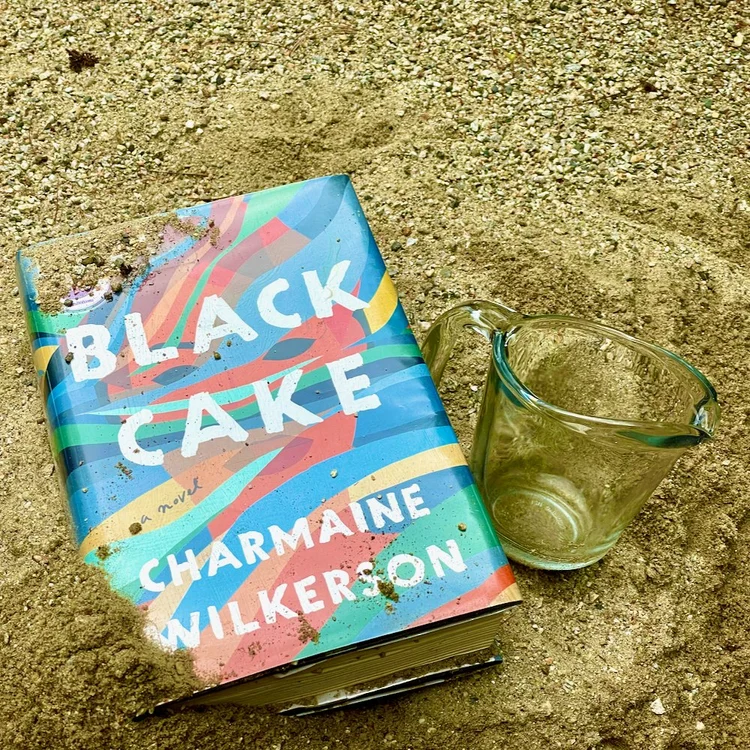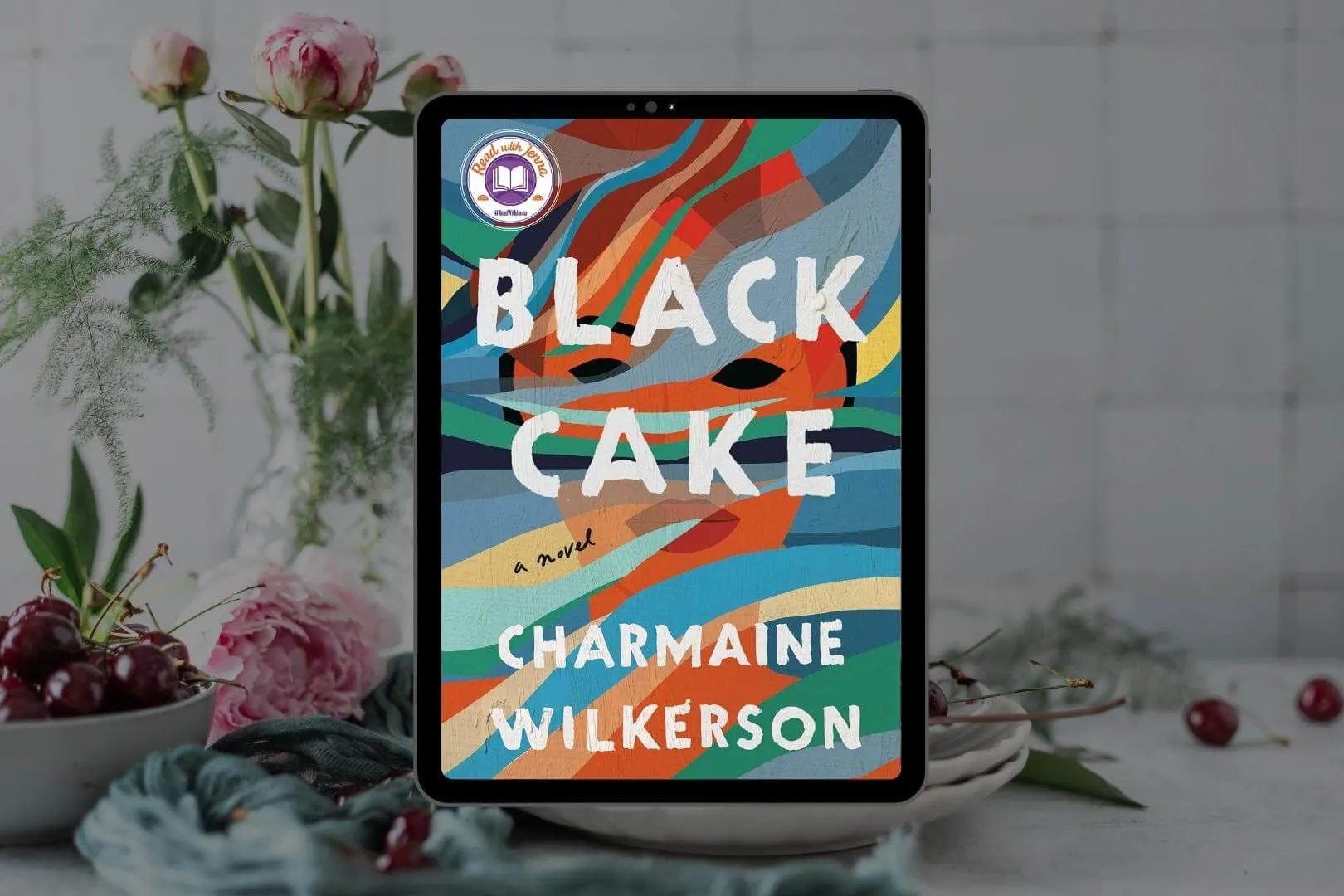Introduction
Black Cake Novel Summary By Charmaine Wilkerson Charmaine Wilkerson’s gripping debut novel, Black Cake, tells a multigenerational tale of identity, family secrets, and the influence of the past on the present. The book examines issues of heritage, resiliency, and the intricacies of familial ties against the backdrop of the Caribbean and the United States. Black Cake draws readers into the lives of its many protagonists as they deal with the burden of their common past through intricate cultural detail and a slow-burning mystery at its heart.
The story starts when Eleanor Bennett, whose life was mysterious, passed away. Benny and Byron, her estranged children, must band together to discover the mysteries their mother concealed from them. Deep layers of family history are revealed as they delve into their mother’s past, and the significance of “black cake,” a traditional Caribbean treat that serves as a symbolic element in the story, is made evident.
Summary
Eleanor Bennett, the protagonist of Black Cake, has a complicated and multi-layered past, much like the dessert of the same name. Following her passing, Byron and Benny, her children, are forced to confront the unsolved riddles surrounding their mother’s life. There were many secrets in Eleanor’s life, some of which are disclosed in a tape she left behind and in the family’s cherished black cake.
Following the death of their mother, Byron and Benny reunite for the first time in years at the start of the book. When they learn that their mother, whom they believed to be well acquainted with, has been concealing a lifetime of secrets, they are stunned. Eleanor, in particular, had been hiding the truth about her childhood and the difficult decisions she had taken in order to keep her family safe.
Eleanor was raised in a little community in the Caribbean, where her narrative starts. Her family is optimistic about her future because she is a talented swimmer. Her life, however, drastically changes when she is compelled to leave after becoming entangled in a sad circumstance combining violence, treachery, and love. Eventually, she ends up in the US, where she creates a new life for herself under a false identity.
Read more
As Eleanor’s children listen to the recordings she left behind, they begin to uncover the painful choices she made in her younger years. They learn about her complicated relationship with her family, including her distant father and her difficult marriage to a man named James. They also learn about the deep personal trauma Eleanor experienced, which had a lasting effect on her sense of identity and her ability to trust others.
Throughout the novel, the theme of identity is central. Eleanor’s decision to reinvent herself in the United States was a response to the need to protect herself and her children from the pain of her past. As Byron and Benny work through their mother’s history, they come to understand her in ways they never could have imagined, and they begin to see how her choices shaped their own lives.

The novel also explores the idea of inheritance, not just in terms of material wealth, but in terms of family history, emotional baggage, and personal identity. As Byron and Benny try to make sense of their mother’s life, they also grapple with their own feelings of abandonment and confusion. The story highlights the importance of family connections and how these bonds can sometimes be both a source of strength and a source of pain.
In the end, Black Cake is a story about reconciliation, healing, and coming to terms with the past. As Eleanor’s children confront the truth about their mother’s life, they are forced to face their own personal demons and learn to accept each other. The novel’s conclusion is both poignant and uplifting, as it shows that even in the midst of tragedy, there is the possibility for redemption and understanding.
Themes
1. Identity and Reinvention
One of the central themes in Black Cake is the idea of identity and the ways in which individuals can reinvent themselves. Eleanor’s journey from the Caribbean to the United States is a literal and figurative escape from the past. She adopts a new identity in order to protect herself and her family from the trauma of her past. Her story raises important questions about how identity is shaped by experience and whether it is possible to truly leave the past behind.
2. Secrets and Family History
The novel is built around the concept of secrets, particularly within families. Eleanor’s children are shocked to learn that their mother had kept so many aspects of her past hidden from them. This theme examines the consequences of keeping secrets and the impact that these secrets have on relationships. As Byron and Benny uncover the truth about their mother, they must come to terms with the emotional fallout that comes with discovering long-hidden truths.
Read more
3. Family and Connection
Family is at the heart of the novel, and Black Cake explores the complexities of familial relationships. Byron and Benny’s strained relationship is a result of their mother’s secrecy, and much of the novel focuses on their journey toward healing and reconciliation. The novel highlights both the strength and fragility of family ties, illustrating how love and loyalty can both bind and divide individuals.

4. Heritage and Cultural Identity
The book is deeply rooted in Caribbean culture, and a large portion of the narrative is on the customs, meals, and rituals that influence the lives of the individuals. A popular Caribbean dish, black cake represents tradition, remembrance, and the bond between generations. The characters’ sense of self and perception of the world are greatly influenced by their cultural identity.
5. Resilience and Healing
Characters show resiliency in the face of hardship throughout the book. While Eleanor’s children’s path toward comprehension and forgiveness illustrates the possibility of healing, Eleanor’s capacity to reconstruct her life following trauma is a monument to her resilience. In the end, Black Cake demonstrates that with time and self-awareness, even the most severe wounds may mend.
Read more
FAQ
1. What is the significance of the black cake in the novel?
The black cake is a symbol of family, heritage, and memory in the novel. It represents the connections between generations, as well as the personal histories that are passed down through time. The cake itself is also a source of comfort and tradition for the characters, and its preparation and sharing serve as a way to bring people together.
2. What role does the setting play in Black Cake?
The novel is set in both the Caribbean and the United States, and the contrast between these locations reflects the characters’ journeys and identities. The Caribbean setting represents the past and the roots of the family, while the United States represents reinvention and new opportunities. The novel uses these settings to explore themes of migration, belonging, and the search for home.
3. How does the theme of identity manifest in the novel?
Identity is explored through the character of Eleanor, who reinvents herself in order to escape a painful past. Her struggle to reconcile her various identities—daughter, wife, mother, and individual—reflects the challenges of defining oneself in the face of trauma. Byron and Benny’s exploration of their mother’s history also leads them to question their own identities and their understanding of who they are.
4. How does Black Cake address the concept of family secrets?
Family secrets are central to the plot of Black Cake, as Eleanor’s children are forced to confront the hidden aspects of their mother’s life after her death. These secrets cause tension and conflict but ultimately lead to a deeper understanding of their family’s history and their mother’s choices. The novel examines the emotional cost of keeping secrets and the eventual need for truth and reconciliation.
5. What is the main takeaway from Black Cake?
The main takeaway from Black Cake is the importance of understanding the past in order to move forward. The novel emphasizes the healing power of facing difficult truths and the strength that comes from family, connection, and resilience. It is a story about accepting who we are, where we come from, and how we can rebuild our relationships in the face of loss and discovery.
Read more













